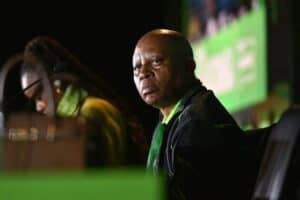Will South Africa still be a good investor destination after the elections or will they continue to flee to countries that offer more?

With the general election in South Africa coming up next week, investors are choosing the wait and see approach as uncertainty over election outcomes continues to drive weak appetite for risk assets and investors remain sceptical amidst economic inertia.
However, Debra Slabber, portfolio specialist director at Morningstar South Africa, says investors had to endure many uncertainties over several years, including politics. “A weak currency, lacklustre economic growth, an unstable energy supply, deteriorating infrastructure and elevated interest rates, to name just a few, is nothing new to South Africa.”
ALSO READ: Multi-Party Charter winning election a long shot, could lead to unrest
She points out that elections tend to bring a lot of emotion, introduce uncertainty and prompt investors to brace for some market volatility. With more than half the people in the world going to the polls this year, the South African election could be a significant one.
“Sentiment towards the ruling party has been falling and some polls predict that the ANC will lose its majority, requiring the ruling party to form a coalition government for the first time. Coalitions can come with disadvantages, such as slow decision making and instability. This could prove to be a headwind for a country looking to improve its economic prospects.”
Political dynamics have impact on financial markets
Slabber says it is said that politics and investing do not mix, but not because political dynamics have no impact on financial markets. “Taxing and spending, policy and regulation, these are all important variables that can impact stocks, bonds, currencies and commodities. Politics is just one of the many forces that move asset prices.”
This chart shows how South African equities and bonds fared for each calendar year and what happened to the rand.

Slabber says it is hard to draw any concrete pattern from the data. “Maybe that in itself tells you that it is maybe more noise than anything else?”
She points out that emotions intertwined with political beliefs present behavioural challenges, undermining the type of rational, coolheaded decision-making that investing demands. “It is wise to acknowledge that elections will most likely increase short-term volatility, but it should not affect your long-term investment strategy or financial plan.”
ALSO READ: Rand soars but SA economy keeps struggling in first quarter
Beware of letting emotion into investing
Kingsley Williams, chief investment officer of Satrix, also says in an environment of uncertainty, such as election time, behavioural biases can creep in, with the temptation to make ‘knee-jerk’ investment decisions in reaction to the current climate and perceived market swings.
“Satrix’s philosophy is to focus on longer-term drivers of performance. This aligns with Warren Buffet’s famous cautionary quote on the dangers of timing the market: Investors should remember that excitement and expenses are their enemies. And if they insist on trying to time their participation in equities, they should try to be fearful when others are greedy and greedy only when others are fearful.”
Williams says although elections bring the potential for heightened volatility, this is not necessarily an issue if an investor’s investment horizon is for the long term. “Investors who combine strategies with payoff structures that are not too highly correlated, and add time for compounding to work its magic, are stacking the odds firmly in their favour over the longer term.”
ALSO READ: ANC/DA coalition: better politically/economically; risk of unrest higher
Market to find sure footing after election
Adriaan Pask, chief investment officer at PSG Wealth, says there is room for cautious optimism among investors. “With interest rate cuts on the horizon, improvements in load shedding and a recent uptick in commodity prices, it seems that we are moving into an environment that could favour a more positive outcome for South African equities.”
He believes that South Africa will have to get through the concerns around the upcoming elections before our markets will find sure footing. “Foreign investor interest plays a pivotal role in our market performance, and currently, there is a cautious “wait and see” stance regarding capital allocation to South Africa.
ALSO READ: Voting with their feet: Are international investors leaving South Africa?
Are investors leaving our shores?
Busiswe Mavuso, CEO of Business Leadership South Africa, says foreign investors will come and go, depending on many factors, including global strategies and our links to the rest of the world. “While decisions are inevitably going to happen both ways, the more attractive our country is, the more often you can expect investment to be made than withdrawn.”
It currently feels as if the withdrawal of investment is dominating ahead of the elections, especially with Shell leaving the country and BHP wanting to buy Anglo American, provided it first unbundles most of its South African assets.
“It is clear that global giants have lost appetite. People vote with their feet. Capital has many addresses and if we do not make it easy to invest here it is going to land somewhere else.”
Support Local Journalism
Add The Citizen as a Preferred Source on Google and follow us on Google News to see more of our trusted reporting in Google News and Top Stories.






